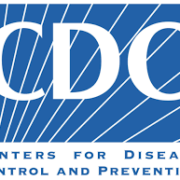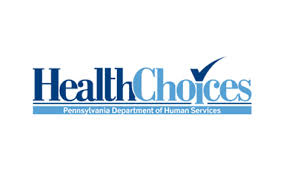COVID-19 Update: Monday, March 1
The following is the latest COVID-19 information from Pennsylvania state government as of 3:30 p.m. on Monday. March 1.
 Governor Wolf
Governor Wolf
Governor Wolf has revised the state’s COVID-19 mitigation orders. Highlights of his revised order are:
- Revised maximum occupancy limits for indoor events to allow for 15 percent of maximum occupancy, regardless of venue size.
- Revised maximum occupancy limits for outdoor events to allow for 20 percent of maximum occupancy, regardless of venue size.
- The elimination of out-of-state travel restrictions.
Learn more about the governor’s order from the following resources:
- a news release from the governor’s office
- the governor’s order for mitigation, enforcement, and immunity protections
- FAQs for the mitigation order changes
- the Acting Secretary of Health’s revised order on gatherings
- the governor’s revised order on travel
- the Acting Secretary of Health’s order rescinding travel restrictions
Department of Health
The Department of Health has updated guidance on the storage and transportation conditions required for the Pfizer vaccine based on new recommendations from the FDA.
 Department of Health – by the numbers
Department of Health – by the numbers
- The number of new COVID-19 cases has been less than 2000 for the past two days – the first time this has happened since early fall.
- The daily death toll continues its steep decline.
- More than 24,000 health care workers in Pennsylvania have contracted COVID-19, as have nearly 80,000 residents and employees of 1567 long-term-care facilities across the state. The continual increase in these numbers since the start of the pandemic has slowed dramatically.
- The governor’s weekly COVID-19 early warning dashboard shows that for the week from February 19 through February 25 the state’s overall COVID-19 test positivity rate fell to 6.3 percent; it was 6.5 percent the week before that. This marked the tenth consecutive week the rate fell.
- 26 Pennsylvania counties – down from 40 a week ago – remain in substantial levels of community transmission of COVID-19: Adams, Beaver, Bucks, Carbon, Centre, Clinton, Dauphin, Delaware, Erie, Huntingdon, Lackawanna, Lancaster, Lebanon, Lehigh, Luzerne, Lycoming, Mifflin, Monroe, Montgomery, Northampton, Perry, Pike, Potter, Union, Wayne, and York. Four counties – one more than a week ago – are in low levels of community transmission: Cameron, Forest, Fulton, and Sullivan. The remaining counties, including Allegheny and Philadelphia counties, are in moderate levels of community transmission.
- The numbers of Pennsylvanians hospitalized with COVID-19, in hospital ICU units because of COVID-19, and on ventilators because of COVID-19 continue to decline.
- Currently, 25 percent of adult ICU beds in the state are unoccupied, as are 21 percent of medical/surgical beds, 14 percent of pediatric ICU beds, 32 percent of pediatric beds, and 39 percent of airborne isolation units.As of March 1 the state’s vaccine dashboard shows that 948,000 Pennsylvanians have received their first dose of a COVID-19 vaccine and 739,000 have received both doses of a vaccine. These numbers do not include Philadelphia, which operates its own COVID-19 vaccination program.
- The vaccine dashboard shows vaccine totals by county.
General Assembly
Pennsylvania House of Representatives majority leader Kerry Benninghoff announced that the House will investigate the Wolf administration’s handling of nursing homes and other senior and long-term-care facilities during the COVID-19 pandemic. The House Government Oversight Committee will lead the investigation.
Around the State
 Spurred by concern that their counties are not receiving appropriate allocations of COVID-19 vaccines, officials of seven western Pennsylvania counties – Beaver, Butler, Fayette, Greene, Lawrence, Washington and Westmoreland – met remotely last week to discuss the possibility of creating a regional health department. The Pittsburgh Tribune-Review tells the story.
Spurred by concern that their counties are not receiving appropriate allocations of COVID-19 vaccines, officials of seven western Pennsylvania counties – Beaver, Butler, Fayette, Greene, Lawrence, Washington and Westmoreland – met remotely last week to discuss the possibility of creating a regional health department. The Pittsburgh Tribune-Review tells the story.- The city of Philadelphia has eased some of its COVID-19 restrictions, according to the Philadelphia Inquirer. Among them: permitting spectators at sporting events, reopening senior centers for the first time in nearly a year, permitting food and drinks to be consumed in movie theaters and more customers in retail establishments, and expanded limits on indoor and outdoor dining, and attendance at religious services.
- Philadelphia’s biggest problem with COVID-19 vaccines now is its ability to administer them and not the supply, the city’s health commissioner told KYW radio.
- COVID-19 has taken a financial and emotional toll on Pennsylvania’s hospitals, the Erie Times-News reports.
Resources to Consult
Pennsylvania Department of Human Services
Pennsylvania Department of Health
Centers for Disease Control and Prevention
 For the week from February 12 through February 18 the state’s overall COVID-19 test positivity rate fell to 6.5 percent; it was 8.0 percent the week before that. This marked the ninth consecutive week the rate fell.
For the week from February 12 through February 18 the state’s overall COVID-19 test positivity rate fell to 6.5 percent; it was 8.0 percent the week before that. This marked the ninth consecutive week the rate fell. The House Budget Committee has passed a COVID-19 relief bill. The following is a summary of the bill’s major spending, how it differs from the previous proposals submitted to the Budget Committee by other House committees, and what the bill does not do.
The House Budget Committee has passed a COVID-19 relief bill. The following is a summary of the bill’s major spending, how it differs from the previous proposals submitted to the Budget Committee by other House committees, and what the bill does not do. Provider Relief Fund
Provider Relief Fund Food and Drug Administration
Food and Drug Administration The document, The State of Our Health: A Statewide Health Assessment of Pennsylvania, generally describes the health status of Pennsylvanians today, addresses current health care challenges the state faces, and identifies areas for improvement.
The document, The State of Our Health: A Statewide Health Assessment of Pennsylvania, generally describes the health status of Pennsylvanians today, addresses current health care challenges the state faces, and identifies areas for improvement. Governor Wolf
Governor Wolf Department of State
Department of State Centers for Medicare & Medicaid Services
Centers for Medicare & Medicaid Services Centers for Disease Control and Prevention
Centers for Disease Control and Prevention The increase has been driven by rising COVID-19 pandemic-related unemployment that has cost many people their health insurance along with their jobs.
The increase has been driven by rising COVID-19 pandemic-related unemployment that has cost many people their health insurance along with their jobs. Department of Health
Department of Health As of February 17 the state’s
As of February 17 the state’s  Department of Health – by the numbers
Department of Health – by the numbers The White House
The White House The bill also should include additional targeted funding for safety-net hospitals, help with staffing, an extension of the current moratorium on the Medicare sequestration, and forgiveness for safety-net hospitals for loans they received under the Medicare Accelerated and Advance Payment Program.
The bill also should include additional targeted funding for safety-net hospitals, help with staffing, an extension of the current moratorium on the Medicare sequestration, and forgiveness for safety-net hospitals for loans they received under the Medicare Accelerated and Advance Payment Program.